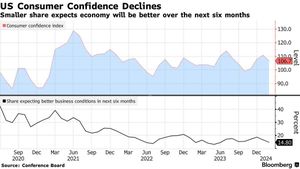Alcohol drinkers across the UK are bracing for price hikes as new duty rates take effect from February 1, 2025, marking the end of Dry January for many. The government has announced significant adjustments to how alcohol is taxed, resulting in increased costs for most beverages except draught beer served at pubs.
The overall alcohol tax is set to increase by 3.6%, aligning with the Retail Prices Index inflation, which has been conveyed during last year's budget announcement. For the first time in over ten years, duty on draught beer will decrease; this equates to about one penny off each pint of average strength beer. Exchequer Secretary to the Treasury, James Murray, stated, "Our pubs and brewers are an integral part of the UK’s economic fabric, and we are focused on supporting their growth through targeted relief measures." This even includes the specific reduction in duty on draught beers with less than 8.5% ABV.
On the flipside, consumers purchasing wines and spirits face price increases. For example, duty on gin will rise by 32 pence per bottle, whereas wine at 14.5% ABV will see duty jump by 54 pence. The Wine and Spirit Trade Association (WSTA) has criticized the changes, calling the current duty regime "punishing" and claiming it leads to lower sales and higher prices for consumers. Miles Beale, WSTA chief executive, commented, "The Government continues to claim the tax hikes are part of their big plan to plug the black hole, but the record-breaking tax levies are doing the exact opposite."
The upcoming changes are rooted not just in inflation measures but also in implementing a new taxing structure based on the strength of the alcoholic beverages. This new system means all drinks, including wines previously subject to a flat tax rate, will now be taxed according to their precise alcohol content. This reworking, which first began its implementation in August 2023, introduced varying tax bands based on strength, significantly affecting wines with moderate ABV levels.
Industry representatives quickly expressed concerns over the potential fallout. The UK Spirits Alliance warns the tax changes could lead to more pub and distillery closures, stating, "The triple-whammy of duty hikes, tax rises, and spiralling business costs are forcing distillers to shut down." Their survey indicated 77% of pub managers believe the increasing spirits duties will negatively impact their businesses, causing widespread worry within the sector.
Stephen Russell, Managing Director of Copper Rivet Distillery, succinctly summarized the collective sentiment: "It is illogical to support the industry by increasing the tax burden on these products, especially when many distilleries are already struggling to remain viable. The duty system targets spirits with unreasonable heavy taxation compared to beer, which does not facilitate growth."
Despite the negatives linked to the price increases, the government did introduce measures aimed at supporting smaller producers, including increased draught relief worth approximately £85 million. Nonetheless, critics have argued these measures do not address the broader economic challenges faced by businesses. Emma McClarkin, CEO of the British Beer and Pub Association, highlighted the need for continued support, noting, "British brewers and pubs contribute significantly to the economy, and we are still far behind our European counterparts concerning duty rates."
Looking at consumer behavior, recent data shows alcohol consumption across the UK has been steadily decreasing. According to reports, nearly half of younger people and one-third of middle-aged individuals are opting not to consume alcohol. This trend could be indicative of changing cultural attitudes toward drinking, especially as the price of high-alcohol content beverages continues to rise.
While some might appreciate the penny-off pint, the impact of these increases may deter casual drinkers from spending as they reassess their habits. The fear remains prominent among business owners who are unsure how consumers will react as these new rates kick in.
Data from HMRC indicates the tax receipts from alcohol have decreased by £209 million year-on-year. Industry leaders suggest these significant tax burdens could stifle revenue generation for both the Treasury and individual producers alike.
With the changes set to take effect, consumers are advised to brace for shifting prices across the board. The anticipated price changes coupled with the wider economic pressures on the hospitality sector highlight the challenges facing both the government and businesses moving forward.
Despite the introduction of potential favorable conditions for draught beer and small producers, many feel the adjustments come at the expense of the wider spirits and wine businesses. Stakeholders across the alcohol sector continue to call for more equitable taxation and relief measures as they face the challenges of operating amid increasing costs and declining sales.
So as February begins and many return to their drinking habits, they might want to reconsider their favorite beverages and prepare for the reality of higher prices, which certainly puts the joy of the first pint of the year at risk.



